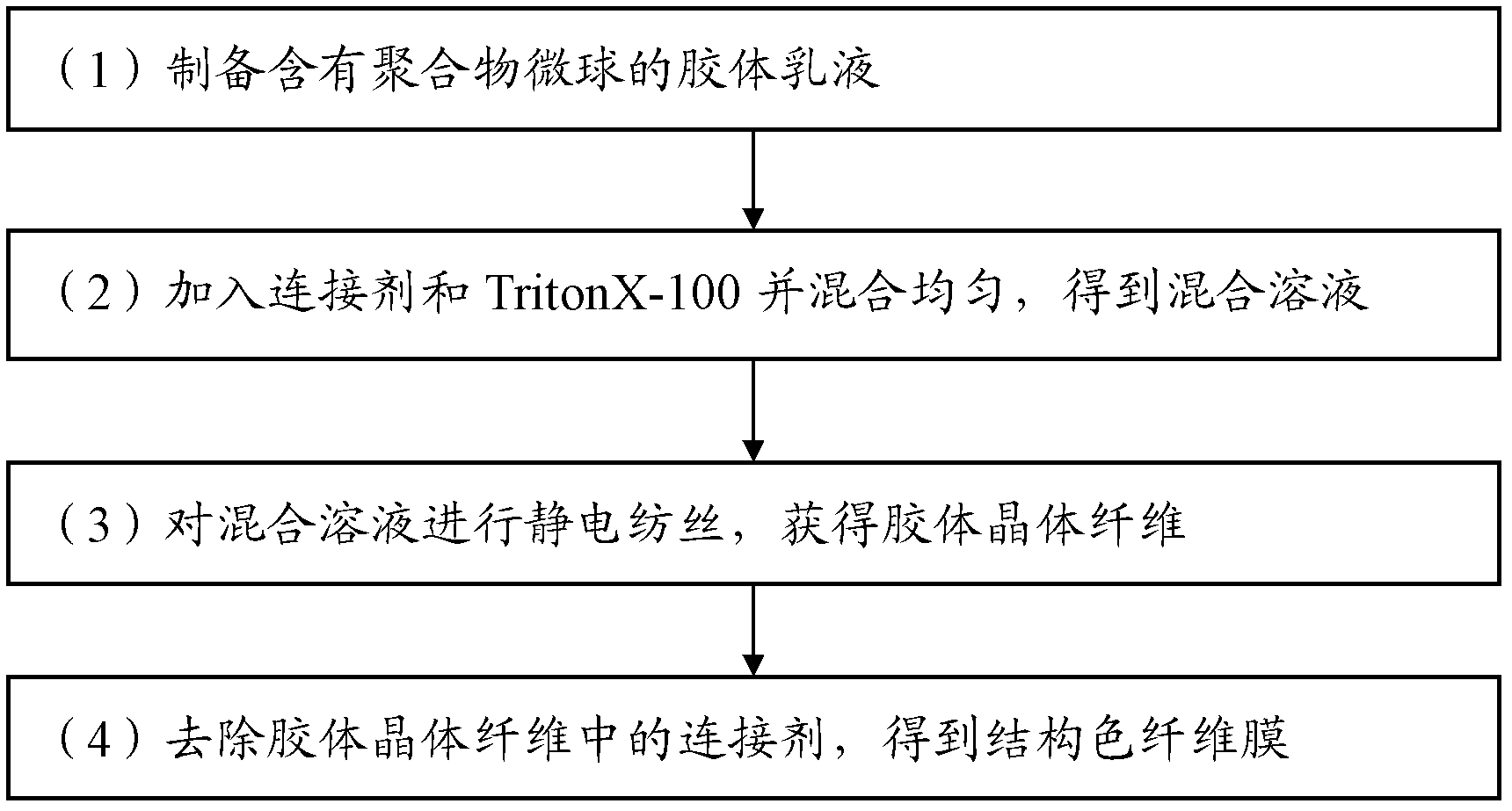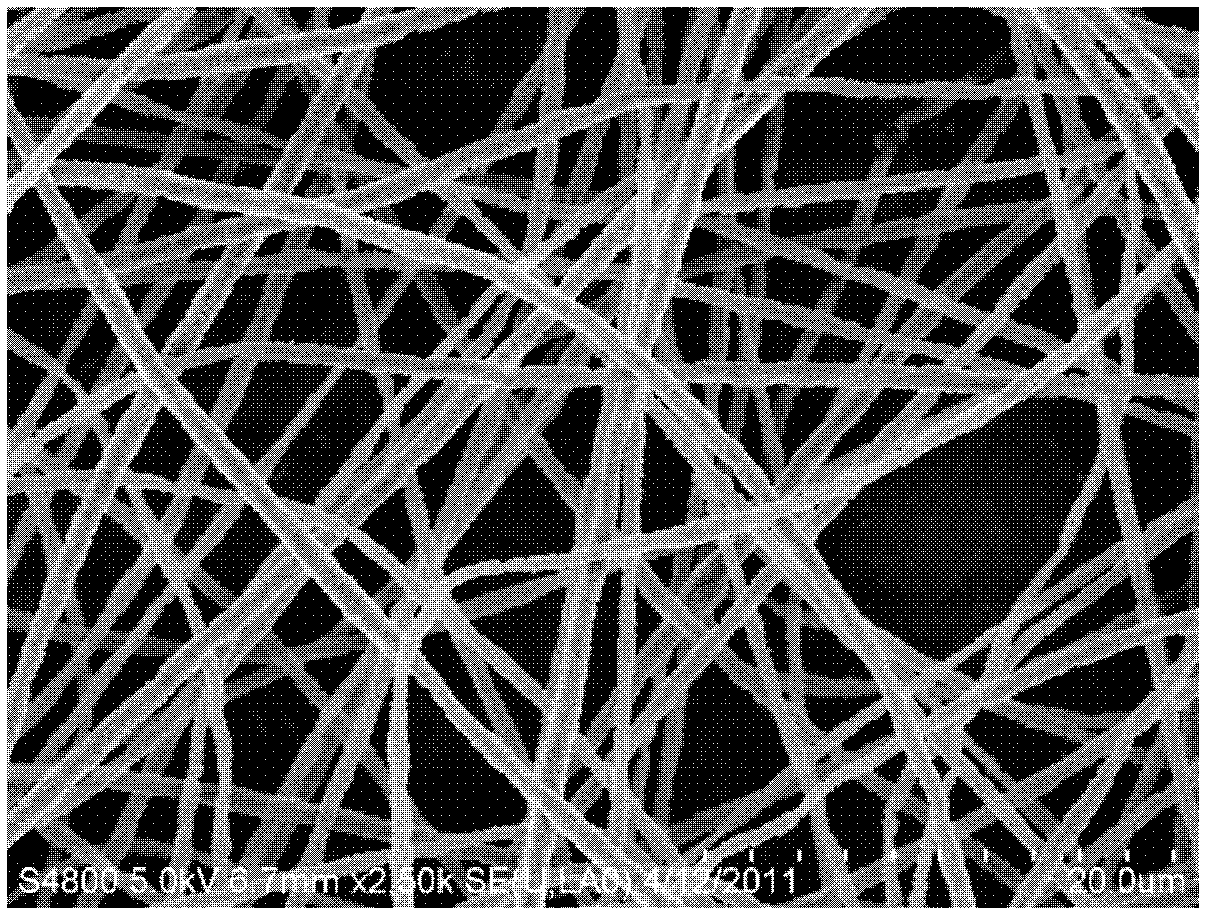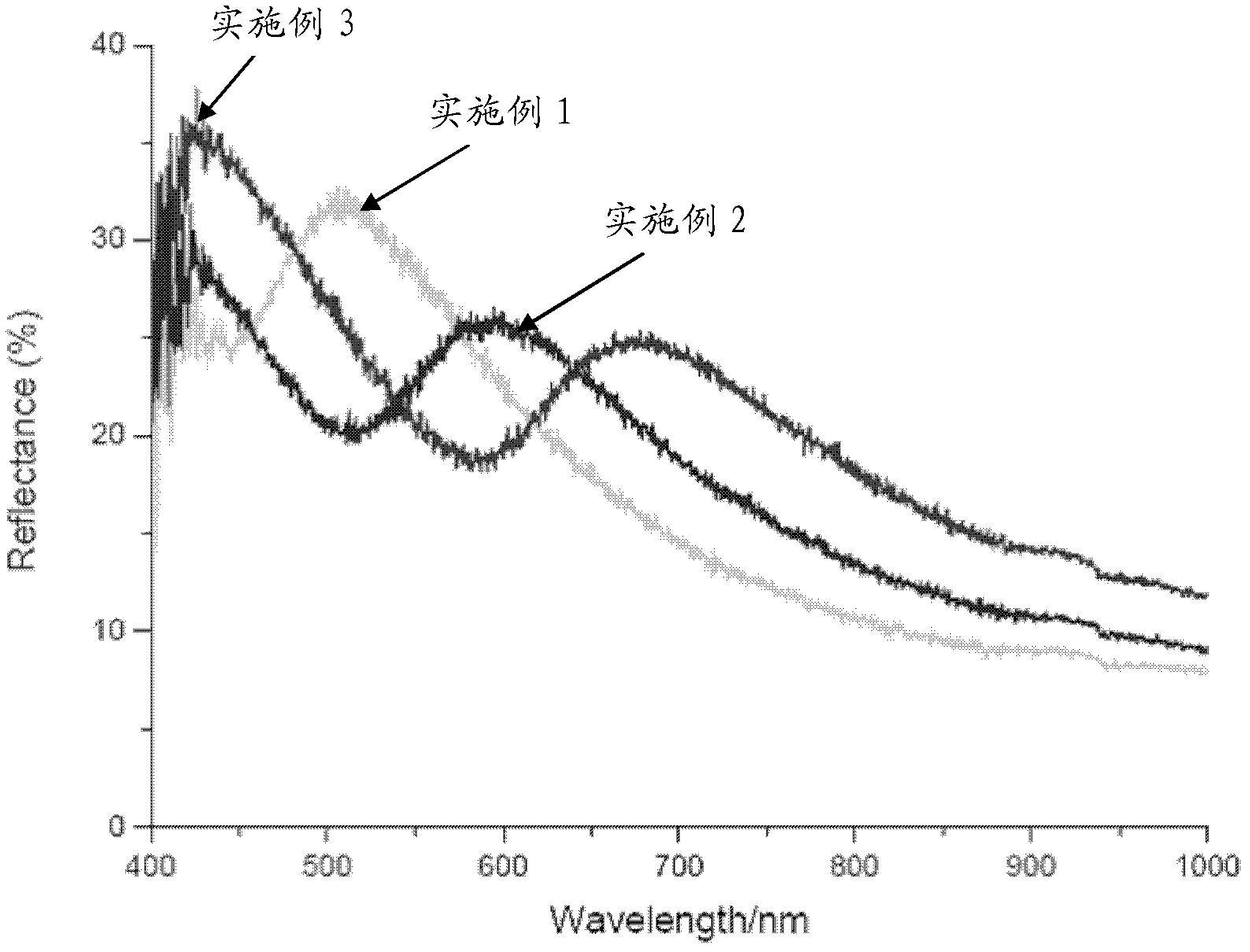Method for preparing fiber film with structural color
A fiber film and structural color technology, applied in the field of fiber textiles, can solve the problems of high cost, complex production process, and color dependence on the viewing angle, etc., and achieve the effect of low cost and simple raw materials
- Summary
- Abstract
- Description
- Claims
- Application Information
AI Technical Summary
Problems solved by technology
Method used
Image
Examples
preparation example Construction
[0029] The embodiment of the present invention discloses a method for preparing a structural color fiber film, which includes the following steps:
[0030] (1) preparing a colloidal emulsion containing polymer microspheres;
[0031] (2) Add linking agent and TritonX-100 and mix evenly to obtain a mixed solution;
[0032] (3) Electrospinning the mixed solution to obtain colloidal crystal fibers;
[0033] (4) removing the linking agent in the colloidal crystal fiber to obtain the structural color fiber film.
[0034] Step (1) is the same as the process used to prepare the suspension of photonic crystal particles, so the polymer microspheres used in the embodiment of the present invention can be silica microspheres, polystyrene microspheres and polymethyl methacrylate microspheres. One of the balls, it can also be a mixture of silica microspheres and polystyrene microspheres. As long as it is a polymer microsphere that can be used to prepare photonic crystals, it can be used i...
Embodiment 1
[0041] 1. By emulsion polymerization, polystyrene microspheres with a diameter of 230 nm are prepared, and then concentrated into a colloidal emulsion with a concentration of 40%.
[0042]2. Take 1g of colloidal emulsion, then add 0.62g of PVA solution with a mass concentration of 13%, and then add 0.012g of Triton X-100, stir by magnetic force, so that PVA and polystyrene microspheres are evenly mixed to obtain a mixed solution.
[0043] 3. Put the obtained mixed solution into a 5ml plastic syringe for electrospinning. The specific parameters are: high voltage 10kv; receiving distance 15cm; capillary inner diameter 0.3mm; liquid feeding rate 0.5ml / h. Control the environmental conditions around the electrospinning: 25°C, 50%-55% relative humidity. The electrospinning time was 5min to obtain uniform colloidal crystal fibers. figure 2 shown.
[0044] 4. Put the colloidal crystal fiber into deionized water, soak it for 24 hours, then take it out, and dry it naturally to get a...
Embodiment 2
[0048] 1. By emulsion polymerization, polystyrene microspheres with a diameter of 260 nm are prepared, and then concentrated into a colloidal emulsion with a concentration of 40%.
[0049] 2. Take 1g of colloidal emulsion, then add 0.62g of PVA solution with a mass concentration of 13%, and then add 0.012g of Triton X-100, stir by magnetic force, so that PVA and polystyrene microspheres are evenly mixed to obtain a mixed solution.
[0050] 3. Put the obtained mixed solution into a 5ml plastic syringe for electrospinning. The specific parameters are: high voltage 10kv; receiving distance 15cm; capillary inner diameter 0.3mm; liquid feeding rate 0.5ml / h. Control the environmental conditions around the electrospinning: 25°C, 50%-55% relative humidity. The electrospinning time was 5min, and uniform colloidal crystal fibers were obtained.
[0051] 4. Put the colloidal crystal fiber into deionized water, soak it for 24 hours, then take it out, and dry it naturally to get a green s...
PUM
| Property | Measurement | Unit |
|---|---|---|
| diameter | aaaaa | aaaaa |
| diameter | aaaaa | aaaaa |
| diameter | aaaaa | aaaaa |
Abstract
Description
Claims
Application Information
 Login to View More
Login to View More - R&D
- Intellectual Property
- Life Sciences
- Materials
- Tech Scout
- Unparalleled Data Quality
- Higher Quality Content
- 60% Fewer Hallucinations
Browse by: Latest US Patents, China's latest patents, Technical Efficacy Thesaurus, Application Domain, Technology Topic, Popular Technical Reports.
© 2025 PatSnap. All rights reserved.Legal|Privacy policy|Modern Slavery Act Transparency Statement|Sitemap|About US| Contact US: help@patsnap.com



